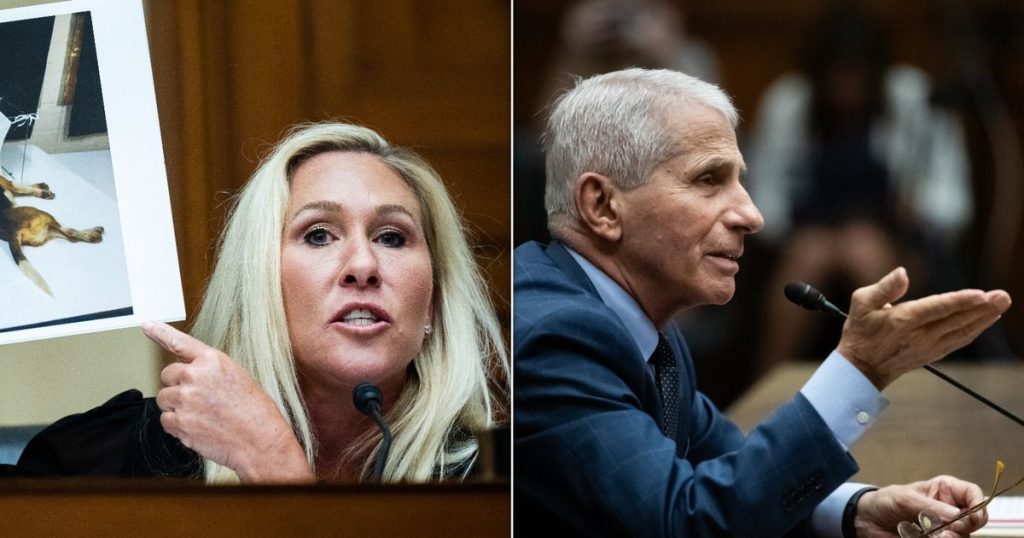Rep. Marjorie Taylor Greene (R-Ga.) launched a scathing attack on Dr. Anthony Fauci during a congressional hearing, accusing him of approving “disgusting and evil” animal testing on dogs using taxpayer money. Greene held up a photo of two beagle test subjects, highlighting a sand flea experiment involving beagles in Tunisia that was incorrectly linked to the National Institute of Allergy and Infectious Diseases (NIAID). Despite the NIAID denying involvement in the experiment, similar lab testing on animals, including beagles, continues to be funded by the U.S. and other countries. The Humane Society of the United States advocates for nonanimal alternatives due to the cruel and inhumane conditions animals endure during experiments involving high doses of chemicals.
The use of beagles in research and testing is still commonplace in the U.S., with about 40,000 beagles utilized annually for these purposes. Animal rights advocates argue that subjecting animals to experimental procedures involving chemicals and toxins is inherently cruel and inhumane. Beagles are often chosen as test subjects due to their docile nature, making them easier to handle during procedures. The use of animals in research, including the force-feeding of chemicals like detergents and pesticides, has been documented in a 2018 report by the Intercept, highlighting the extreme conditions animals face in laboratory settings.
While the National Institutes of Health (NIH) plays a major role in funding animal experimentation, the issue is not isolated to one agency or individual. The NIH allocates approximately $14.5 billion in taxpayer money annually for research involving animal testing. Animal Legal Defense Fund considers wasteful and cruel methods of animal research to be a systemic problem that extends throughout the industry. Advocates push for nonanimal testing alternatives, citing data from the FDA indicating that only 8% of drugs tested on animals are deemed safe and effective for human use.
The Animal Welfare Act of 1966 oversees the treatment of animals in various settings, including research, teaching, and exhibition. Despite this law, which resulted in a record $35 million fine against a Virginia company breeding beagles for medical research, animal activists argue that it does not offer sufficient protection. The law only covers certain warm-blooded species, leaving out the majority of animals used in laboratory experiments. Efforts are underway to expand regulations, such as the Humane Cosmetics Act and Better CARE For Animals Act, to address extreme acts of animal cruelty, including those within research facilities.
While Rep. Greene targeted Fauci and the NIH in her remarks, there are bipartisan efforts by other lawmakers to address the issue of federal funding in animal experimentation. Proposed legislation like the Humane Cosmetics Act and the Better CARE For Animals Act aim to restrict animal testing in cosmetics and allow the Department of Justice to intervene in cases of animal cruelty. The Humane Society is also working to encourage drug companies to utilize nonanimal alternatives in testing by petitioning the FDA to update its regulations. Increased funding for nonanimal alternatives is seen as a crucial step in reducing animal testing in research and testing procedures.


